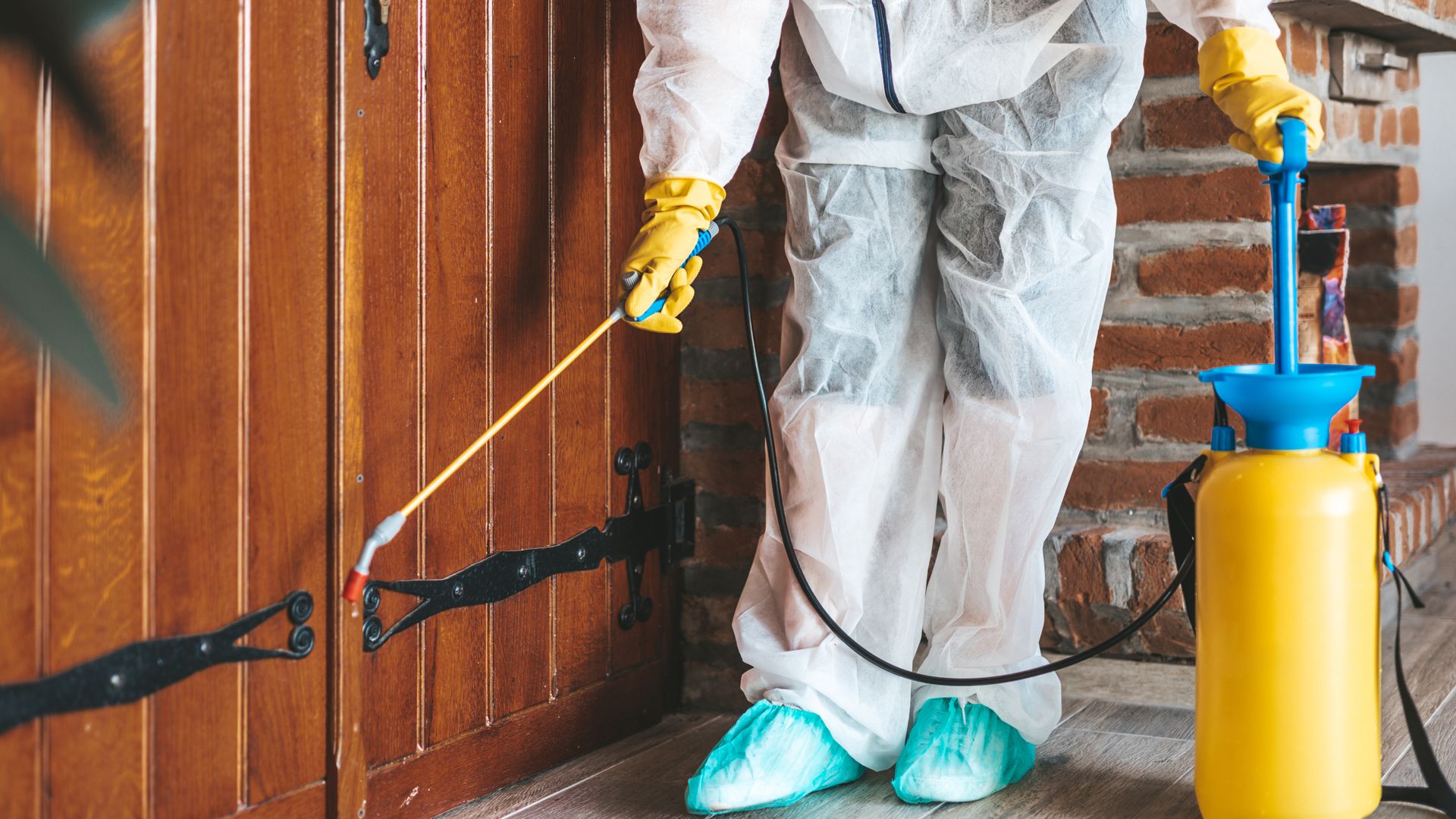
THE KEY TO DEALING WITH NUISANCE WILDLIFE IN AIKEN
When animals fly or scamper into your backyard, they're fun to watch—well, most are fun to watch. You're not likely to enjoy seeing a skunk waddle through your grass or disappear into your landscaping. But, in general, wildlife is fun to have around. Unfortunately, wild animals are exactly that. Wild. You can't expect them to act like domesticated animals, and it shouldn't come as a surprise when wild animals do things that are surprisingly undomesticated, such as knocking over your trash receptacles, ripping holes in your screens, or chewing a hole in your soffits. At Aiken Pest Control, we have a lot of experience with wildlife pest control in Aiken, and we've seen animals cause a lot of trouble for residents and business owners in our area. Some wildlife problems might come as a shock to you. We're going to start today by discussing some ways animals can cause you harm, beginning with an extremely dangerous (but, thankfully, rare) disease called rabies. We'll tell you how rabies and other dangerous diseases can be brought into your home and, most importantly, how you can prevent this from happening. Last, we'll look at when it is the right time to call in a wildlife management professional and how we're different from animal control in Aiken.

Nuisance Wildlife And The Risk Of Rabies
There are only one to three cases of rabies reported annually. In a population of over 350 million, you have a greater chance of being struck by lighting, so why talk about rabies? Because, while rabies is rare, the way you get this and other diseases is similar.
Here are a few facts you should know:
- Rabies passes from animals to humans.
- You can get rabies without having an animal bite you.
- Rabies is transmitted through contact with the saliva of an infected animal.
- If a wild animal bites your dog, your dog can get rabies.
- If infected, your dog can give rabies to you.
- On average, symptoms begin in thirty to fifty days.
- Acute symptoms resemble the flu: sore throat, fever, muscle aches, headache, nausea, and fatigue.
- Death from cardiac arrest or respiratory failure occurs shortly after the onset of symptoms.
We don't share these facts to scare you. The risk of rabies is extremely low. What we are attempting to show you is a pattern.
- Diseases are passed from animals to humans all the time. Sometimes it is through a bite; but more often it is by some other means such as exposure to fleas, ticks, and mosquitoes that have bitten the animal.
- The ways diseases are passed from animals to humans are not always obvious. Many diseases are transmitted by way of saliva.
- Dogs and cats can not only be impacted by wild animals, they can expose you to illnesses.
- Symptoms of these animal-related diseases can be mistaken for the flu or the common cold.
- Life-threatening sickness can result from contact with zoonotic diseases such as West Nile virus, malaria, EEE, Lyme disease, Rocky Mountain spotted fever, tularemia, ehrlichiosis, bubonic plague, and many more.
The first step with nuisance wildlife is recognizing that they're not just a nuisance. There is a potential for serious illness. It is best to keep wildlife off your property as much as possible and prevent animals from seeking harborage under structures or inside your home. Doing so will prevent secondary pests such as fleas, ticks, and mosquitoes from making you sick.
Tips On Sealing Animal Entry Points
When animals come into your yard, they don't immediately present a threat. There are circumstances that increase the risk of illness:
- When animals bed down, they make it possible for flea larvae and flea dirt to be deposited in the same location, creating the conditions for development from flea eggs to adult fleas.
- When animals explore your landscaping, they can drop ticks. These ticks scale vegetation and wait to get on your dog, cat, or clothing.
- When animals get into your attic space, their waste can be a source of disease.
- When animals get into ventilation, waste, hair, and saliva can turn into airborne disease particulates.
- When rodents explore your home from top to bottom, they can introduce fleas and ticks and contaminate counters, furniture, stored foods, and more.
The goal of exclusion work is to seal entry points that animals may use. There are a variety of animals that may get into places they shouldn't. Raccoons or skunks may get under a deck. Squirrels may get into your attic. Bats may find their way into wall voids. Mice and rats may find entry points from your foundation to the top of your chimney. Here are a variety of tips to help you keep wildlife out:
- Install fencing material to block access to voids underneath structures, such as your deck, porch, patio, stairs, or shed.
- Use a can of expanding foam or a high-quality caulking material to keep bats, birds, and other pests out of gaps.
- Use wire mesh to cover holes in wood members, or to block passage through gaps around plumbing.
- Install hardware cloth behind louvers or to protect gable vents.
- Apply metal flashing to bolster your defenses, particularly in trouble spots where rodents are chewing on building materials, such as soffits or wood.
Along with exclusions, there are other ways to stop animals from creating nests or dens on your property or in your home. You can use these long before there is a need to contact a licensed wildlife-management professional.
When To Call A Professional
When you first see animal activity, there are many ways you can deter those animals without the need to contact a professional. You just need to consider why animals want to come into your yard and remove the attractants, if possible.
- Animals may be attracted to your property because of a food source, such as open trash, bird seeds on the ground, nuts or fruit underneath trees, dog or cat food, and so on. Remove or protect food to deter animals from coming into your yard.
- Small animals will be attracted to your property if there are lots of places to hide. Remove yard clutter, trim bushes and shrubs, address weed problems, and remove unnecessary vegetation from your landscaping.
- Animals are drawn to water sources. There are many ways you can create watering holes for wildlife. An overturned frisbee with rainwater collected in it is like a water dish. A clogged gutter system can lead to perimeter saturation and puddles next to your home. Some animals will drink water out of your gutters if they have access to your roof. That leads us to our next point.
It is essential to remove routes pests can take to get to vulnerable areas, such as your roof. We recommend:
- Trimming branches away from your roofline
- Putting something prickly on wires where they touch the exterior of your home
- Inserting wire mesh into downspouts
- Removing lattice and creeping vines from your exterior
These tips are natural deterrents that work to keep animals from making your home their home. If you don't have time, energy, or inclination to tackle the hard work necessary to keep animals away, there is another option: You can get ongoing pest control for your property, and this can be done at any time. You don't have to wait until an animal has gotten underneath a structure or found its way into your attic or wall voids. Routine visits from a pest control technician will alert you to trouble and address issues early. Anytime is the right time to call a professional.
Professional Nuisance Wildlife Control Services In Aiken
Who do you call for nuisance wildlife control in Aiken? Is this the job of animal control? When you see a stray dog or cat in your yard, you call animal control. You'll also call them when a bear or some other animal that presents an imminent danger to your safety comes into your yard. For nuisance wildlife, you call us. While nuisance wildlife can transmit dangerous diseases, they're not considered an imminent threat. If you contact animal control, they will direct you to wildlife management company, like us. You can skip the middleman and just reach out to us directly. At Aiken Pest Control we use human methods to trap and remove wildlife. Our experienced technicians perform a detailed inspection to locate activity, harborage, routes, and conducive conditions. Using the findings of your inspection, your technician will develop a treatment plan to arrest activity. We use high-tech equipment and we do the hard work of applying exclusion products, which offer long-lasting protection from future wildlife infestations. We're not afraid to roll our sleeves up because we know that going the extra mile is what sets us apart from our competition—not to mention it's the right thing to do.
Are you having trouble with wildlife in Aiken? Let our highly trained, and highly friendly, wildlife-management professionals help you get unwanted animals out and keep them out. Reach out to us today to schedule a service visit. It's time to let those animals know they're being evicted!

Hear from our happy customers
-
“They are always very helpful and pleasant from the field technicians to the people answering the phone.”- Audrey A.
-
“Mr. Cecil was very thorough in his inspection of my home, and even identified a couple of potential problems that I would never have known about.”- Stephanie F.
-
“He is a very kind young man. And always continue to deliver your great service to us.”- Ruby S.
-
“This was the first time I met him as we have been a long time customer of Aiken Pest Control. I hope he will be our normal scheduled tech that comes out!”- Samantha G.
-
“He was extremely knowledgeable and took care with the safety of my dog and my horses pony. He was polite and definitely went the extra mile for my family!!”- Christina W.


Latest Blogs
Stay informed about pests and pest related issues in your area!


